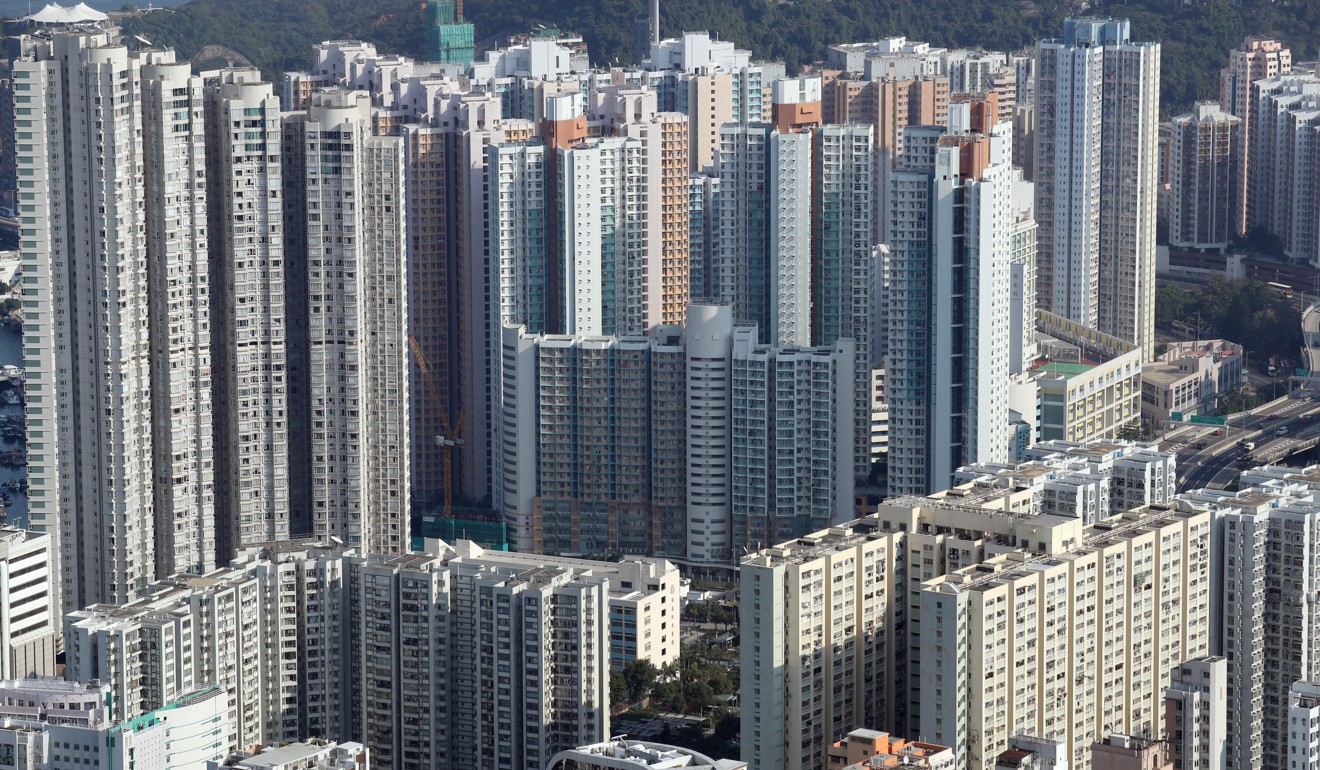
Land deal for US consulate site in Hong Kong was proposed just six months before city was handed back to China in 1997
Lands Department reveals that America first approached city’s government about purchasing leasehold for site six months before China took possession of Hong Kong
New details have emerged about the history of a deal with the Hong Kong government that gave the United States what is believed to be the longest land lease in China.
The US consulate sits on prime real estate in the city’s Central district, land that could be worth billions of dollars and which the US informed the Hong Kong government it intended to acquire just six months before the city was handed from British rule to Chinese in 1997.
On Friday, the government revealed the US request to purchase the consulate site at 26 Garden Road as a freehold six months before the handover was rejected by the Hong Kong government, which then proposed a 999-year lease, with sales restrictions removed in 1999.

In an earlier reply to the Post’s inquiry about the rare lease, a spokesman for the city’s Lands Department said on Friday night that the US government had told its Hong Kong counterpart of its intention to exercise its power to buy the site as a freehold in January 1997, just a few months before the handover.
The original lease for the site was for 75 years from April 19, 1950 – renewable for another 75 years – at an annual rent of HK$2,092 (US$266), and included an option for the US to buy the freehold, according to Land Registry documents. Under it, the US would have to give three months’ notice of its interest to buy the site, upon which there would be a payment “mutually agreed to be the fair value of the freehold reversion”.
“However, under the land administration policy at that time, it was not common practice to grant freehold,” the spokesman said. “After referring to legal advice and on the basis of respect for the lease agreement, the Hong Kong SAR government and the United States government have agreed to replace the option to purchase the freehold with a contractual amendment.”
Request to change names of Hong Kong, Macau consulates called ‘common sense’
The amendment included changing the lease term to 999 years, and the removal of the restrictive clause around selling the land. The contract amendment was completed in 1999, according to the spokesman.
“It was the only case the Lands Department has dealt with since 1999,” he added.
Roger Nissim, a former senior official in the Lands Department, told the Post earlier that the lease was presumably granted because the post-handover Hong Kong government did not want the US owning a piece of China.
He called the 999-year lease “a virtual freehold” and “purely presentational”.
Hong Kong home prices may slip as much as 10 per cent, UBS says
On Monday, free-market advocate David Webb published an article on his website titled “Revealed: the USA has the longest land lease in China”. It included Land Registry documents showing that in 1999 the government of then chief executive Tung Chee-hwa extended a lease for the consulate at 26 Garden Road to 999 years for HK$44 million.
Sale restrictions in the original lease were also removed, meaning that “the USA could, if it wanted, sell the entire site in the open market, and relocate to leased offices or simply close”, Webb wrote.
The payment of HK$44 million was based on an independent professional assessment, according to the Lands Department. Now the site is worth billions of dollars.
The US consulate spokeswoman Darragh Paradiso said on Tuesday that the mission had no plans to move.
Dr Chi-Kwan Mark, senior lecturer in international history at Royal Holloway, the University of London, and author of Hong Kong and the Cold War: Anglo-American Relations 1949-1957, said amending the lease to 999 years was “a mutual compromise”.
“If the US was able to buy the land as a freehold, symbolically, it wouldn’t look good in terms of sovereignty,” Mark said.
At that time, the US saw Hong Kong as maybe its most important regional economic headquarters and the Chinese government was unworried by US activity in Hong Kong because of the countries’ good relations, he said. Plus, the Chinese government had a generally hands-off approach to the city before the handover.
“If the US government proposed something similar now, it probably wouldn't be granted a 999-year lease,” Mark said, noting changes in the countries’ relative standing in the intervening decades.
